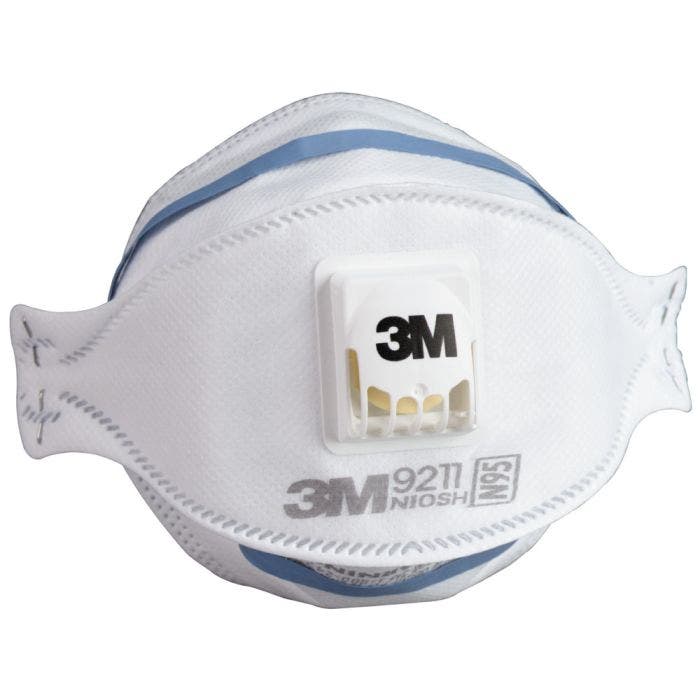3M Collapsible Respirator With CoolFlow Valve Box of 10
In stock
Only 1 left
SKU
N9211
$44.95
SEE ALL TIER PRICING
Buy 3 for $43.95 each and save 2%Buy 6 for $42.96 each and save 4%
READ MORE...
Product Information
Product Specs
- Meets NIOSH 42CR 84 requirements
Product Warranty Information

- This product is covered under A.M. Leonard's exclusive 30-Day Down to Earth Guarantee. Click Here for more Details.
Product Features
- For particulates only; for jobs that kick up a lot of dust but do not require an actual respirator with cartridges
- Individually wrapped so they are clean for each use
- Exhalation valve
Product Benefits
N-Series Filters are restricted to use in an atmosphere free of oil* aerosols and can be used for solid or liquid airborne particulate hazards that do not contain oil*. These filters should be used or reused only with consideration of damage, hygiene, or increased breathing resistance. N95 Particulate Filter - At least 95 filter efficient when tested with ~0.3 um NaCl aerosol. *Oil: Mineral, vegetable and synthetic substances and animal and vegetable fats that are generally slippery, combustible, viscous, liquid or liquefiable at room temperatures, soluble in various organic solvents such as ether, but not in water.
Product Shipping Weight
- .66 pounds
Frequently Asked Questions
1. What are some beginner-friendly plants that can be grown in a small garden?
Some beginner-friendly plants that can be grown in a small garden include herbs (such as basil and thyme), tomatoes, lettuce, radishes, and carrots.
2. How often should I water my plants during the summer?
Plants should be watered frequently during the summer, ideally once a day in the early morning or late evening. However, the frequency and amount of water needed depends on the specific plant and its environment, so it's best to do some research for the plants you want to grow.
3. What are some common landscaping mistakes to avoid?
Common landscaping mistakes to avoid include overplanting, failing to plan for maintenance, choosing plants based on looks alone (rather than considering their needs and suitability for the environment), and neglecting hardscaping elements (such as patios and walkways).
4. How can I make my garden more eco-friendly?
You can make your garden more eco-friendly by using sustainable materials in your hardscaping (such as reclaimed wood or permeable pavers), planting native species to support local wildlife, composting to reduce waste and provide natural fertilizer, and using organic pest control methods (such as companion planting and using natural repellents).
Some beginner-friendly plants that can be grown in a small garden include herbs (such as basil and thyme), tomatoes, lettuce, radishes, and carrots.
2. How often should I water my plants during the summer?
Plants should be watered frequently during the summer, ideally once a day in the early morning or late evening. However, the frequency and amount of water needed depends on the specific plant and its environment, so it's best to do some research for the plants you want to grow.
3. What are some common landscaping mistakes to avoid?
Common landscaping mistakes to avoid include overplanting, failing to plan for maintenance, choosing plants based on looks alone (rather than considering their needs and suitability for the environment), and neglecting hardscaping elements (such as patios and walkways).
4. How can I make my garden more eco-friendly?
You can make your garden more eco-friendly by using sustainable materials in your hardscaping (such as reclaimed wood or permeable pavers), planting native species to support local wildlife, composting to reduce waste and provide natural fertilizer, and using organic pest control methods (such as companion planting and using natural repellents).
Write Your Own Review


